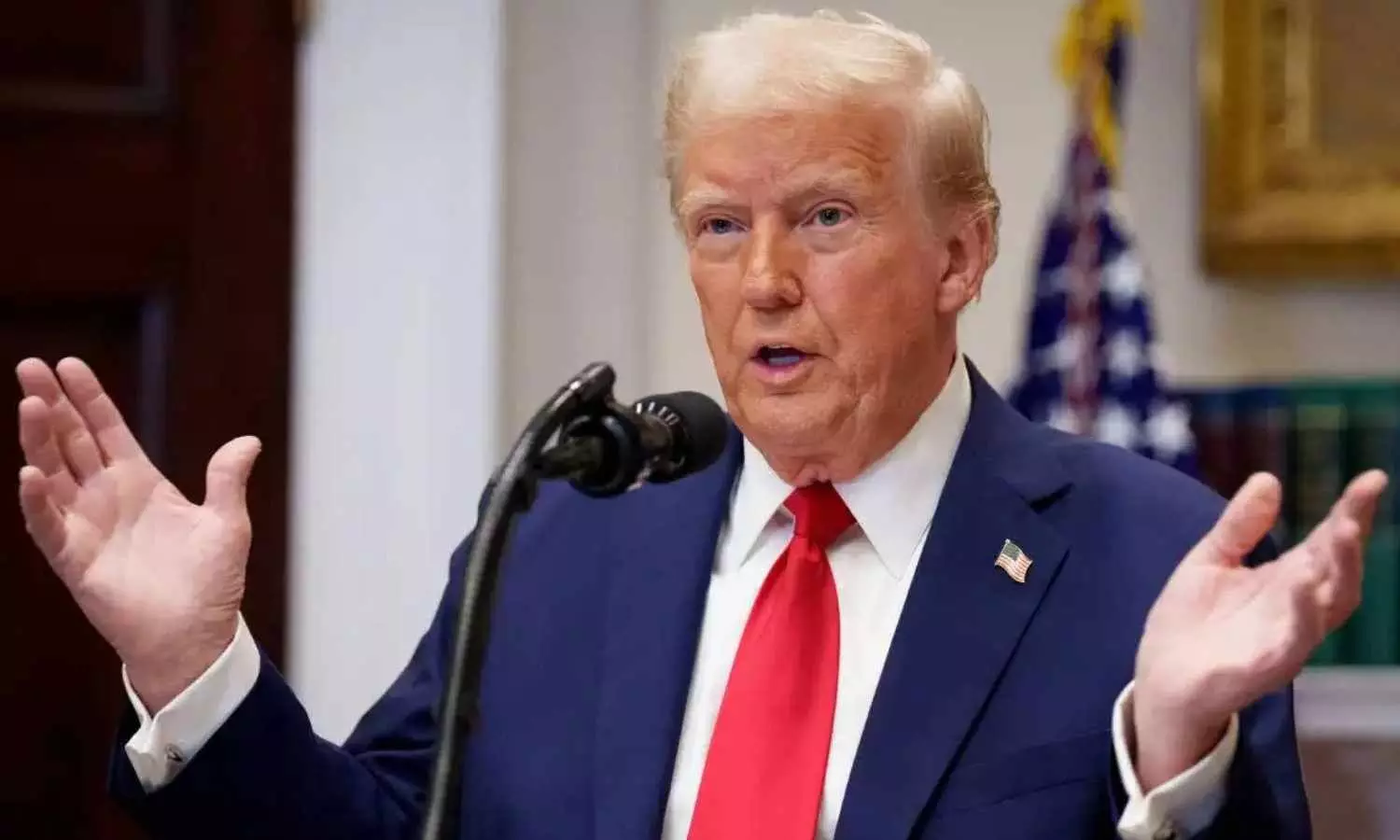Trump’s Tariffs Shake Markets, Trigger Global Economic Fears
Markets tumble as Trump defends sweeping new tariffs. Experts warn of rising inflation, recession risks, and a global trade war.
image for illustrative purpose

Global markets opened to chaos Monday after President Donald Trump defended his tariffs on Truth Social, saying they are “a very beautiful thing to behold.” US stock indexes fell, Treasury yields dipped and traders braced for volatility.
In his post, Trump said trade deficits with China, the European Union and other partners can only be cured by tariffs. “We have massive financial deficits … only way this problem can be cured is with TARIFFS … a beautiful thing to behold,” he wrote, adding that surpluses have grown under President Joe Biden.
Federal Reserve Chair Jerome Powell warned that protectionist measures risk higher inflation and lower growth. Trump replied, “CUT INTEREST RATES, JEROME, AND STOP PLAYING POLITICS.”
Analysts at JPMorgan raised global recession risk from 40 per cent to 60 per cent, while Goldman Sachs lifted its estimate from 20 per cent to 35 per cent. Economists cited rising costs for manufacturers and consumers and the threat of stagflation.
On April 2, the administration imposed a 10 per cent tariff on all imports and introduced reciprocal levies on 57 trading partners based on bilateral trade deficits. Tariffs on Chinese goods will rise to 54 per cent on April 9, and a 25 per cent duty on auto imports took effect April 3.
Commerce Secretary Howard Lutnick said about 50 countries have sought talks but that the schedule will not change. China, Canada and the EU have announced retaliatory duties on US exports, raising concerns about a tit‑for‑tat trade war.
Last week US equity markets lost about $6 trillion in value. The S&P 500 dropped over 10 per cent in two days, and the Nasdaq entered bear market territory. Asian markets tumbled at Monday’s open.
Legal experts are reviewing whether the president has authority to impose sweeping tariffs without congressional approval, and international trade bodies are monitoring potential disputes under World Trade Organization rules.
Consumers may face higher prices for electronics, autos and household goods, and manufacturers reliant on imported parts may pass costs to buyers. Investors will watch for market reactions as the China tariff hike takes effect on April 9.
Despite warnings and losses, Trump has shown no sign of reversing course, framing tariffs as a tool to reset US‑China trade and bring money back to the United States.
**SEO keywords:** global markets, tariffs, trade deficit, recession risk, inflation, US‑China trade, bear market, 10% tariff, 54% China tariff, Smoot‑Hawley, retaliation.

